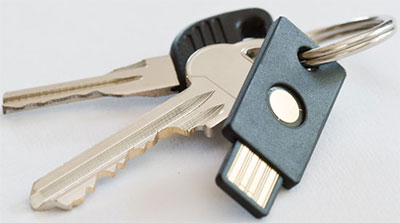 Younger than most other prestigious U.S. research universities, Duke University consistently ranks among the very best. Duke’s graduate and professional schools — in business, divinity, engineering, the environment, law, medicine, nursing and public policy — are among the leaders in their fields. Duke’s home campus is situated on nearly 9,000 acres in Durham, N.C, a city of more than 200,000 people. Duke also is active internationally through the Duke-NUS Graduate Medical School in Singapore, Duke Kunshan University in China and numerous research and education programs across the globe. More than 75 percent of Duke students pursue service-learning opportunities in Durham and around the world through DukeEngage and other programs that advance the university’s mission of “knowledge in service to society.”[1]
Younger than most other prestigious U.S. research universities, Duke University consistently ranks among the very best. Duke’s graduate and professional schools — in business, divinity, engineering, the environment, law, medicine, nursing and public policy — are among the leaders in their fields. Duke’s home campus is situated on nearly 9,000 acres in Durham, N.C, a city of more than 200,000 people. Duke also is active internationally through the Duke-NUS Graduate Medical School in Singapore, Duke Kunshan University in China and numerous research and education programs across the globe. More than 75 percent of Duke students pursue service-learning opportunities in Durham and around the world through DukeEngage and other programs that advance the university’s mission of “knowledge in service to society.”[1]
(Quotes below are from Richard Biever, Chief Information Security officer at Duke University.)
Why and where has Duke University deployed strong authentication?
"A few years ago, we began looking at alternatives to protect user accounts and passwords. The threats posed by phishing messages, key loggers, password sniffing, and password re-use as well as the ease of cracking password hashes via GPU led us to look at multifactor alternatives. One of the key requirements for us was to find a solution that would provide multiple ways for a user to log into a system or application. Given the variety of user groups at Duke as well as the wide variety of applications, having multiple “2nd” factors (something you have) was a must. Early in the pilot, we added  Yubikeys as one of the options for our multifactor service, and continue to utilize Yubikeys for staff as a component of our multifactor service."
Yubikeys as one of the options for our multifactor service, and continue to utilize Yubikeys for staff as a component of our multifactor service."
Why did Duke chose the YubiKey for two-factor authentication?
"We implemented our first multifactor pilot in late 2012. During the pilot, we engaged the security and identity management teams to evaluate the service and authentication mechanisms. These teams are in and out of systems and applications all day long, sometimes logging in via SSH, RDP, or Shibboleth as many as 40 times in a given day. For these teams, the ease of securely authenticating into our systems by touching the button on the YubiKey was a driving force for the inclusion of Yubikeys as a part of our multifactor strategy.”
What work was required to integrate the YubiKey into Duke's authentication?
"We have integrated Yubikeys with our primary multifactor service and have enabled it with our Shibboleth infrastructure. We also extended the service to our key IT systems, requiring multifactor access via SSH, RDP, and specific VPN contexts."
What has the user experience feedback been?
"Those using Yubikeys for multifactor access appreciate the quick login capabilities.”
What is your experience working with Yubico?
"When we began working with YubiKeys, we initially purchased directly from the Yubico web store. As our YubiKey user base continued to grow, we began purchasing in bulk orders and continue to add as time goes by. The Yubico team has been very responsive to our needs and continue to provide excellent support."